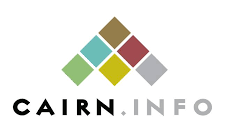VALUE CONFLICTS IN DUAL ORGANIZATIONS SEEN FROM AN IDENDITY MODELS PERSPECTIVE
Abstract
Academic research has mainly favored the analysis of
unique characteristics of dual organizations (Tuschman
and O’reilly, 1996), namely the ability to simultaneously integrate both polarities of the same voltage.
However, little attention has been given to value conflicts which are part of the functioning of these organizations. The article examines the construction of the
ideal type models of dual organizations which identify
professionals on potential transitions between each
model and the type of value conflict. The analysis identified three models: the model of “help,” focused on the
original mission, the model of the “insertion / profitability” in line with the new strategic direction of these
organizations, and the “hybrid” model combining the
aforementioned models. From monographic comparison, we mobilize a qualitative methodology based on
case studies and a multilevel analysis crossing individual, organization and temporal dimensions. On the one
hand, we highlight the similarities between socially
responsible company and the public enterprise. They
are the characteristics of the dual organization. On the
other hand, we point out an obvious tension represented by a hybrid model. Our results show the importance
of the value conflicts in dual organizations, the existence of permeable and unstable borders among professional’s models and the difficulty of finding a cognitive
consistency. This is an opportunity for managers of
these organizations to develop a human ambidexterity,
to give sense and to promote a widened cooperation.
The approach of this research reveals the relevance of
compared monographs based on a multi-level analysis








